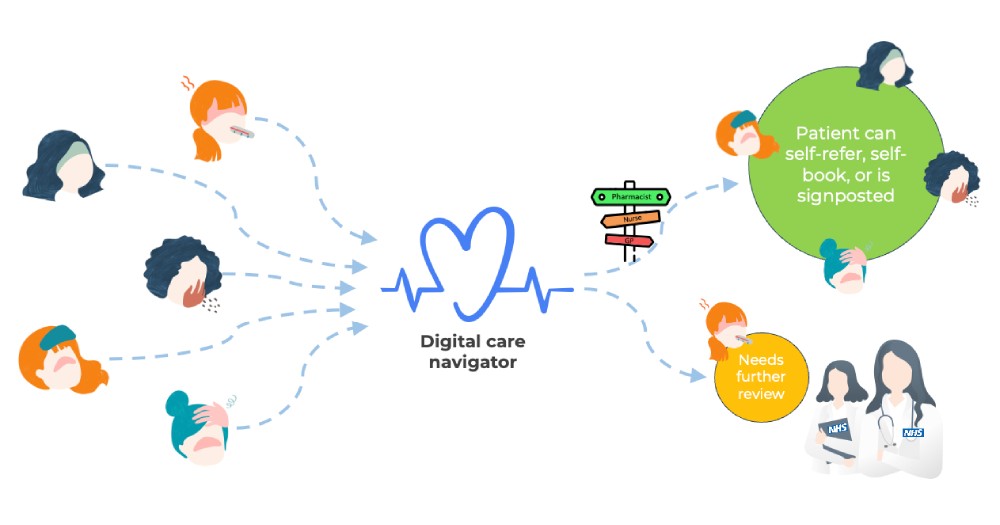UK NHS study: AI triage system achieves 73% reduction in waiting times

In a new NHS-funded study, an AI-powered triage system has been shown to reduce patient waiting times by 73%, offering a glimpse into the future of healthcare delivery. This autonomous system, called Smart Triage, was implemented at Groves Medical Centre — a leading GP practice in Surrey and South West London. The results have been remarkable, signaling a new era for patient access and practice efficiency.
According to the centre's management, the system has significantly improved patient care and also staff work-life balance.
How does it work?
Smart Triage, developed by health technology company Rapid Health, leverages artificial intelligence to autonomously triage patients based on their clinical needs. Upon contacting their GP — whether online, by phone, or in person — patients are guided through a set of questions designed to assess their symptoms. The system then determines the most appropriate type of care and allows patients to self-book appointments without any staff intervention.
By automating the process, Smart Triage eliminates the traditional first-come, first-served model, ensuring that patients with more urgent needs are prioritized. In addition, the system's self-booking feature empowers patients to schedule their care at their convenience, significantly reducing the need for follow-up calls or unnecessary repeat visits.
Why does it matter?
The transformative impact of Smart Triage lies in its ability to address some of the most pressing challenges in primary care. According to the evaluation, the system has reduced waiting times from 11 days to just 3 days for pre-bookable appointments. In addition, it has alleviated the overwhelming "8am rush" that typically plagues GP practices, with a 47% drop in peak-hour phone calls.
As Group Manager Jake Kennerson noted, "There's been a significant decrease in the number of patients requiring same-day appointments and wait times have been drastically reduced."
The system improved access while enhancing the quality of care. For instance, the evaluation found that 70% fewer patients needed repeat appointments, as they received the right care on their first visit. This means more efficient use of practice resources and improved patient outcomes.
The context
The NHS has long struggled with managing patient demand, especially during the winter months when same-day appointment requests surge. Groves Medical Centre, which implemented the system in October 2023, experienced this seasonal challenge firsthand. Despite the increased demand, the practice saw dramatic improvements, such as an 85% increase in face-to-face appointments and a 60% reduction in phone-initiated requests.
Dr. Andrea Fensom, GP Partner at Groves Medical Centre, shared, "Smart Triage has completely changed how we work. It has not only optimized our resources but increased patient access."
The real-world evaluation conducted by Unity Insights, funded by Health Innovation Kent Surrey Sussex, further validates the effectiveness of autonomous triage in improving healthcare delivery. This study provides the first conclusive evidence that an autonomous system can safely and effectively handle the triage process from start to finish.
As Carmelo Insalaco, CEO of Rapid Health, stated, "These results reflect what we consistently observe with our customers across the country — the remarkable potential for Smart Triage to dramatically enhance patient access and choice, while solving the persistent challenges of lengthy waiting lists and disruptive morning bottlenecks."
In light of these findings, adopting AI-powered triage systems like Smart Triage could be a game-changer for the NHS — offering short-term relief from appointment bottlenecks and long-term improvements in patient care.
💡Did you know?
You can take your DHArab experience to the next level with our Premium Membership.👉 Click here to learn more
🛠️Featured tool
 Easy-Peasy
Easy-Peasy
An all-in-one AI tool offering the ability to build no-code AI Bots, create articles & social media posts, convert text into natural speech in 40+ languages, create and edit images, generate videos, and more.
👉 Click here to learn more


